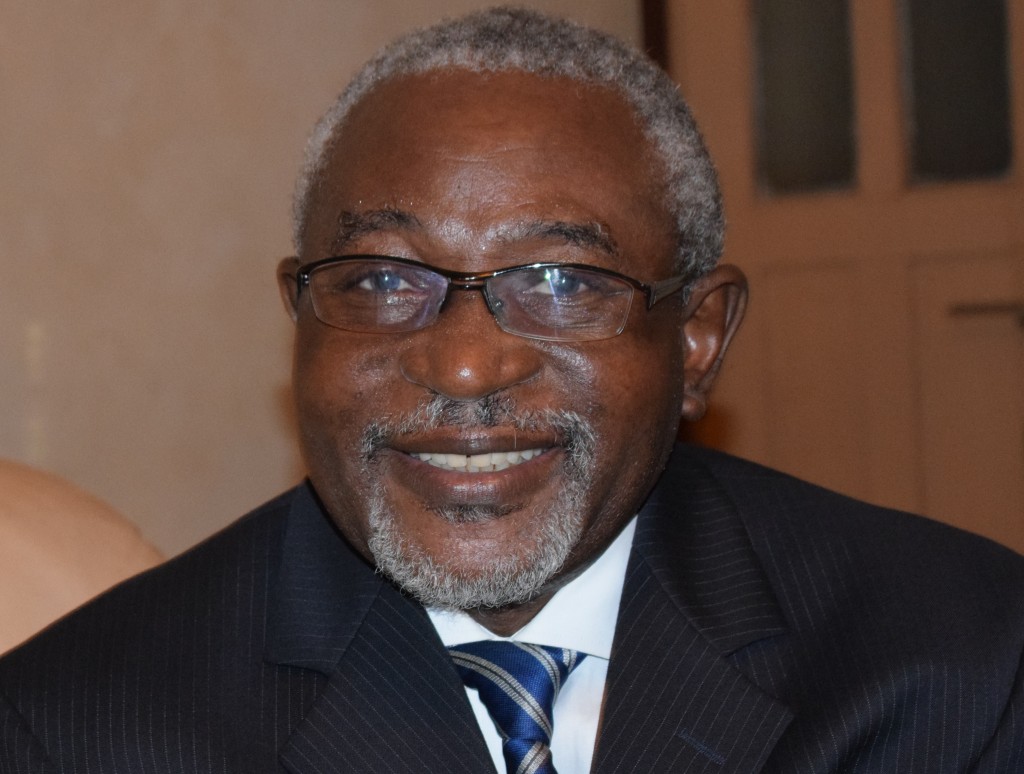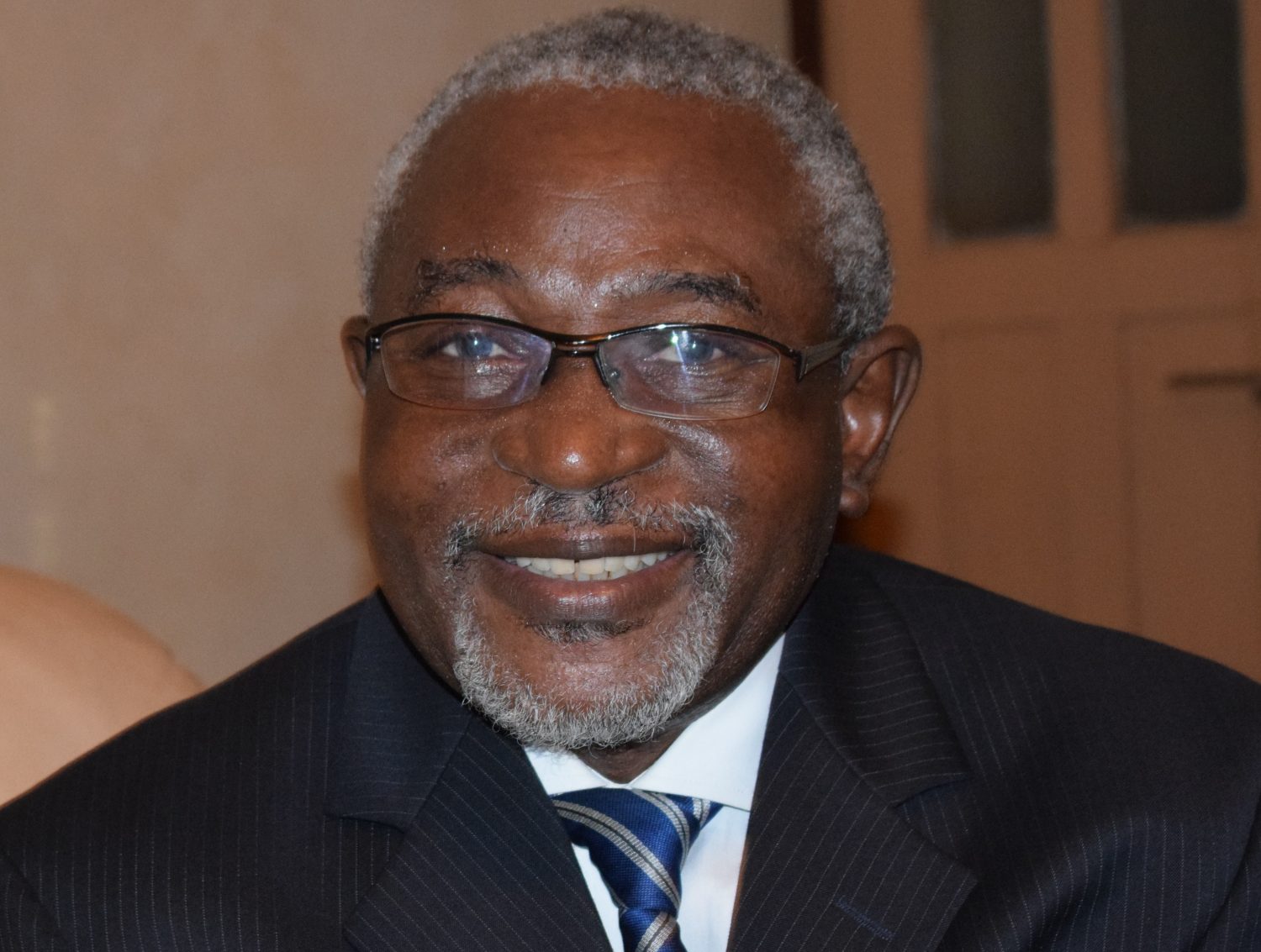President Trump should leave his own marks

BY AMBASSADOR ROGATIEN BIAOU
Former Benin Foreign Minister
President Barack Obama’s tenure was a historical one. First and foremost, it was the first time in history that a person of African descent rose to the position of president of the United States of America. His reelection confirmed the evolution of the political thinking of the American political class. Secondly, we must acknowledge, as Africans, that Obama was elected to serve the interests of the citizens of the United States, not those of Africans. He’s an American citizen. He was elected to take care of the issues pertaining to the American society, even though he’s of African origin, even though his father was African. Thirdly, during his tenure, he made it clear that Africa needed strong institutions, not strongmen. Which means that we, Africans, should do our best to establish institutions that are conducive to our evolution in the process of development. Development is a process that requires lasting institutions capable of supporting the constitutive memory of the people. Men come and go, but institutions remain.
I should also mention the establishment of the Young African Leaders Initiative (YALI), which is like the reinforcement of the African Growth and Opportunity Act (AGOA), and the Millennium Challenge Account (MCA). This clearly shows the trust President Obama placed in the youth, the rising generation that will pick up the torch to pursue the task of building the nations of Africa, and, hopefully, the federation of the United States of Africa.
Fourthly, President Obama showed that campaign promises—though they may be fueled by sincere intention and deep conviction—sometimes don’t materialize in the face of real politics, because, in the democratic process, you have the actors in the opposition who sometimes stop you from achieving some of your objectives by laying some traps on your way. While Obamacare—a laudable healthcare program for the needy that many before Obama had tried unsuccessfully—survived the challenges of the Republican Party, the president was unable to keep his promise to close Guantanamo. That’s unfortunate, and that’s how goes politics, especially presidential politics. But he compensated that with the resumption of relation with Cuba and traveled to the Island where no American president had set foot since the crisis of the Bay of the Pigs in 1961.
Unfortunately, some of his initiatives are now threatened to be terminated by the new administration.
Talking specifically about the new administration’s policy towards Africa: first and foremost, the new administration should reinforce and continue the existing programs, that is AGOA, MCA and YALI. The new president should also add his own stone to the build-up of that policy, have a program that bears his name. YALI bears Obama’s name, the MCA bears Bush’s signature, and AGOA belongs to Clinton. We could suggest, for instance, that the new president launch a program geared towards the financing of research in Africa. I don’t personally believe in technology transfer. Instead, I believe African researchers who work on the continent should be supported in order for their research to lead to discoveries that will meet the specific needs of African people. That’s, in my view, one of the only ways the new president can leave his marks.
Take the health sector, for instance. He can innovate here as well. There are too few American hospitals in Africa. You have the American hospital of Beirut, the American hospital of Paris, among others, but not in Africa. By the same token, there are only a few American universities in Africa. Clearly, the new generation cannot pick up the torch adequately unless we emphasize education, training and capacity-building.
Overall, as a message to President Trump, let me say that the conduct of state’s business is hard and complex, and should not be mistaken or compared with the management of a private-sector business or entity.
____________
Ambassador Rogatien Biaou served as Benin’s chief diplomat from 2003 to 2006. In that context, he held several high-profile international positions, including the following:
-
President of the U.N. Security Council (Feb. 2005);
-
Non-Permanent Member of the United Nations Security Council (Jan. 2004-Dec. 2005);
-
Member of the International Group on the Follow-up, Monitoring and Assessment of the Political and Military Situation in Côte d’Ivoire (2004-2006);
-
Member of the Ministerial Committee of the Economic Community of West African States (ECOWAS) on Conflicts Prevention, Resolution and Management (2003-2006);
-
Representative of Benin to The International Court of Justice (I.C.J.) on the Issue of Border Dispute between Benin and Niger (June 2003-Feb. 2006);
-
Chairman at the ministerial level of the Group of the Least Developed Countries (LDCs) at the United Nations (June 2003-Feb. 2006);
Prior to being appointed Minister of Foreign Affairs and African Integration, Ambassador Biaou held several positions at the Benin Foreign Ministry, including those of Permanent Secretary (May 2000-June 2003); First Counsellor and Minister-Counsellor at the Permanent Mission of Benin to the United Nations in New York (Sept. 1990-February 1998); Chairman of the Committee for the Review of the Implementation of the United Nations Convention to Combat Desertification (Oct. 2001-Sept. 2003).
Ambassador Biaou is a graduate of fine institutions of higher learning, with degrees that include the following:
-
Preparatory Certificate for Doctor in Political Science and International Relations, Université Libre de Bruxelles, Belgium (July 1985);
-
Special Bachelor’s Degree in International Relations, Université Libre de Bruxelles, Belgium (July 1985);
-
Training Certificate in Diplomatic Practices and Multilateral Cooperation delivered jointly by the International Public Administration Institute (IIAP) of Paris, France and by the United Nations Institute of Training and Research (UNITAR) of Geneva, Switzerland (July 1984);
-
A degree in Diplomatic Studies, Center for Administrative and Advanced Training (CEFAP), Université Nationale du Bénin (Nov. 1982);
-
A Master’s Degree in Law and Political Science (with concentration in International Relations), Université Nationale du Bénin, (March 1980).
A prolific writer, Ambassador Biaou also teaches classes at the National School of Administration and Magistrate of the Université d’Abomey Calavi.


